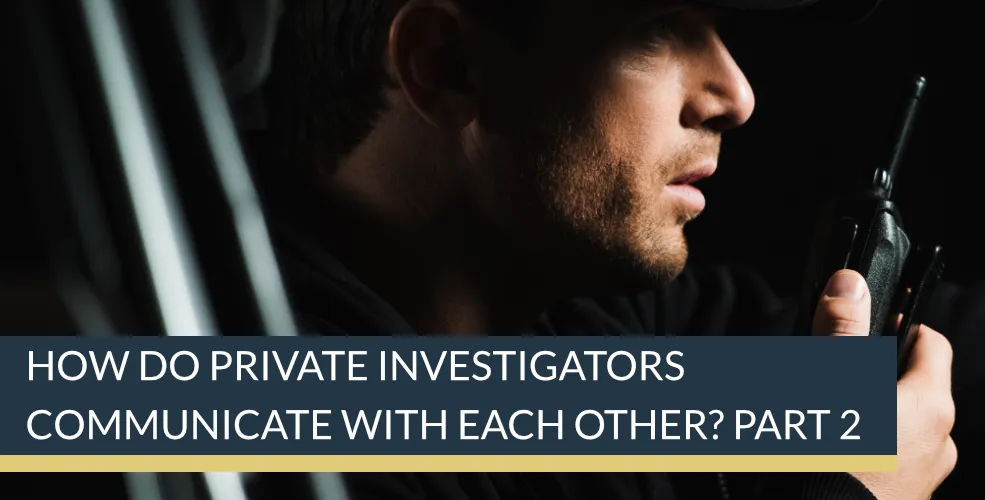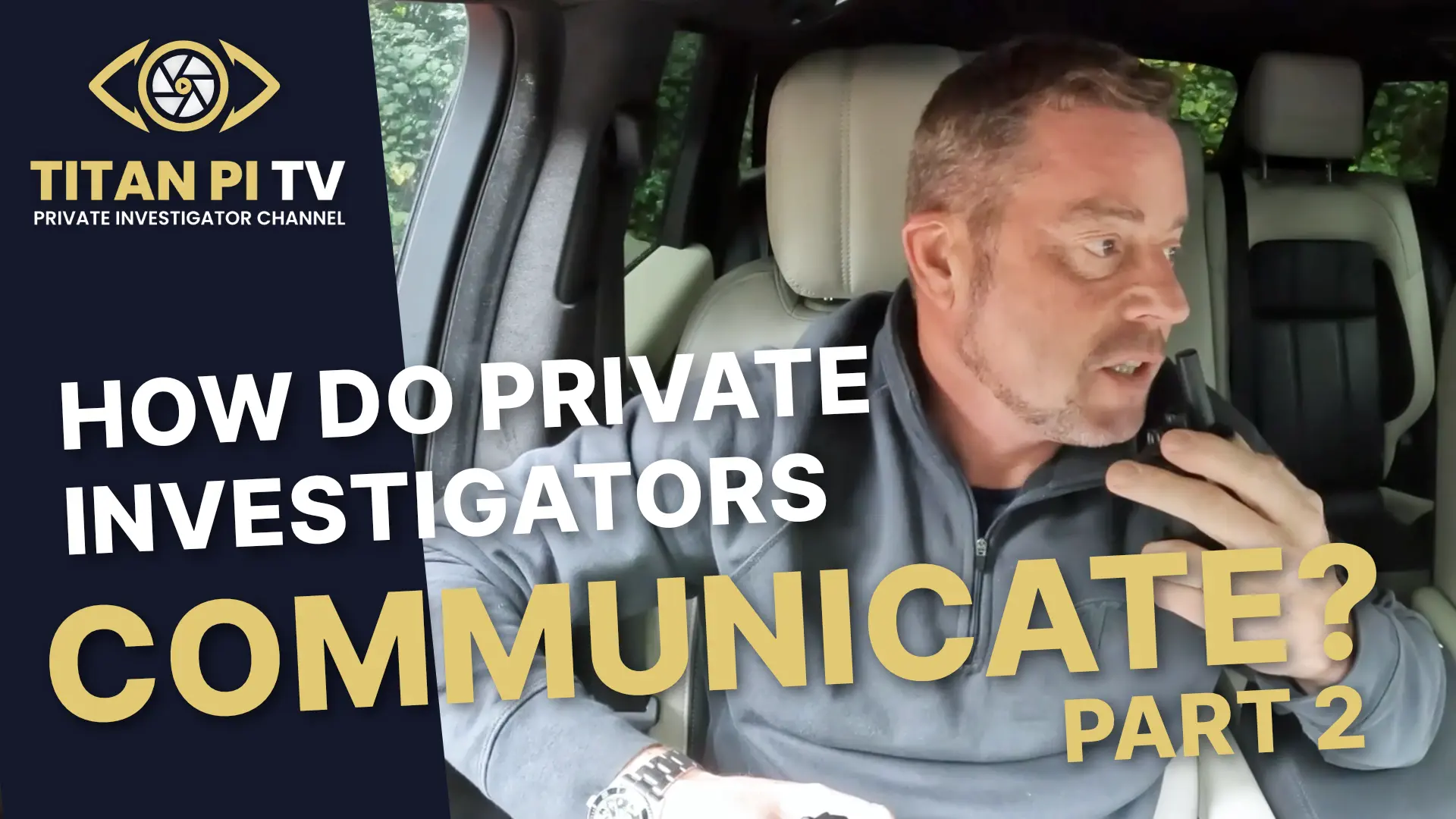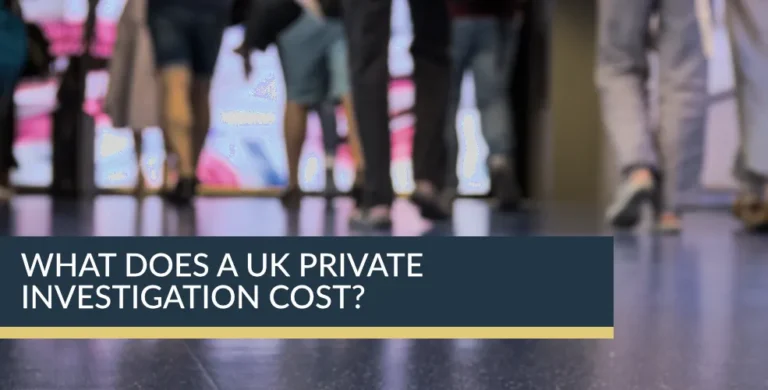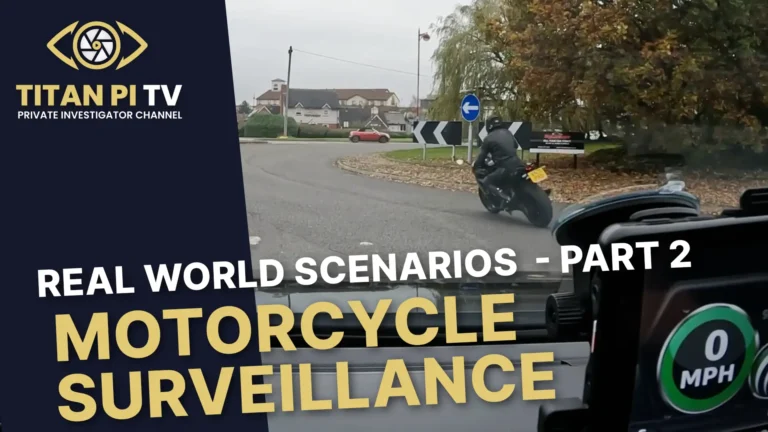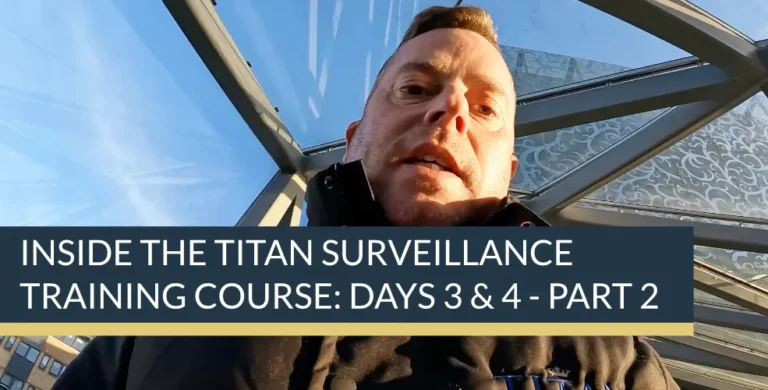How do private investigators communicate with each other? Part 2
Understanding Radio Use and Alternatives
In the field of private investigation, where every second counts and discretion is paramount, seamless communication is indispensable. Private investigators rely on effective communication to relay critical information, maintain team coordination, and ensure safety in real-time operations. Radios are the preferred communication tool, but they’re not without limitations and challenges. Here, we dive into how private investigators manage communication in various situations, discussing the choice of equipment, the importance of protocol, and the strategies for handling potential failures.
The Role of Wired Headphones in Training and Fieldwork
When training new private investigators, using wired headphones is often favoured over wireless alternatives like Bluetooth devices or AirPods. Wired headphones offer a straightforward connection, ensuring clarity and reliability without the risk of connectivity disruptions that can occur with wireless devices. Here’s why wired devices are advantageous in private investigations:
- Reduced Connectivity Issues: Unlike Bluetooth devices, which may disconnect or encounter pairing issues, wired headphones are simpler and more reliable in demanding environments.
- Battery Dependability: Wireless devices are prone to running out of battery, creating the risk of communication loss in the middle of an operation. Wired headphones, on the other hand, only require a physical connection to the radio, eliminating concerns about charging during long shifts.
The one potential issue with wired headphones is ensuring they’re securely plugged in, especially when operatives are moving frequently or in and out of vehicles. However, this small challenge is far preferable to the various risks associated with wireless devices. In high-stakes operations, where every piece of equipment must work seamlessly, reliability is the top priority.
Conducting Radio Checks: An Essential Pre-Operation Step
Performing a radio check is a fundamental yet often overlooked component of communication readiness. Before leaving for the field, every team member must confirm that their radio and headset are functioning properly. This process ensures operatives can communicate from the outset and helps eliminate last-minute complications that could compromise mission success.
A standard radio check involves:
- Initiating the Check: One team member, typically the team leader, starts by saying, “Simon, radio check.”
- Receiving a Response: The other operative responds, “Yes, you’re loud and clear, Simon.”
- Confirming Communication: The team leader then confirms, “You’re also loud and clear.”
This simple exchange verifies the clarity and functionality of each team member’s radio, allowing any technical issues to be identified and addressed before deployment. Radio checks are a form of insurance, ensuring that if communication breaks down later, it’s clear that the equipment was functioning correctly beforehand.
Adapting When Radios Fail: Communication Alternatives
In high-pressure investigations, even the most reliable equipment can fail. Batteries die unexpectedly, interference can occur, or signals can be lost. When radios fail, operatives need alternative communication methods to maintain coordination. Titan-trained investigators are prepared with several fallback options to ensure continuity:
- Mobile Phone Apps: Investigators often have secure group communication apps, like Zello or PTT (Push-to-Talk) applications, downloaded onto their smartphones. These apps provide encrypted group messaging, allowing team members to communicate securely if radio signals are lost. However, these apps do come with a trade-off: if an incoming phone call is received, it can momentarily interrupt communications, which may be a disadvantage in urgent scenarios.
- Messaging Apps: Encrypted messaging apps, such as Signal and WhatsApp, are invaluable for private investigators. These platforms allow for text-based communication and sharing of information, such as photos or live location data. Text communication can be particularly useful in scenarios where verbal interaction may draw unwanted attention.
- Hand Signals: In situations where verbal communication is not possible—such as in crowded areas or where absolute discretion is required—private investigators may use predetermined hand signals. Although they are a last resort, hand signals can help convey simple instructions or alerts between team members, especially when standing in view but out of earshot. However, investigators must use hand signals subtly to avoid drawing suspicion.
By maintaining a diverse toolkit for communication, private investigators can handle unexpected breakdowns in technology and ensure that the flow of information continues unimpeded, regardless of the circumstances.
Safeguarding Communication: The Importance of Radio Security
In private investigation, confidentiality is paramount. The information shared over radios often involves sensitive details that could compromise an investigation if intercepted. This is why radio security, particularly the use of encryption, is critical. Encryption technology helps ensure that only those authorised can listen in on conversations, keeping all communication securely within the team.
When selecting communication devices, private investigation firms often choose radios with built-in encryption. These radios scramble the voice data, allowing only those with the correct decryption key to interpret the messages. Additionally, using licensed channels reduces the risk of interception by unintended listeners or nearby surveillance systems, which is particularly important when operating in areas with heightened security, such as around large events or in business districts.
Maintaining physical security over radio devices is equally important. If an operative were to lose a radio, they could inadvertently expose sensitive information to whoever finds it. For this reason, private investigators are trained to keep their radios secure and to avoid placing them in easily accessible pockets or bags.
Maintaining Professionalism in Communication Protocols
In addition to the technical aspects of communication, the way investigators communicate is just as essential. Clear, concise, and professional language helps avoid misunderstandings, especially when working under pressure. The protocols private investigators follow during radio communication reinforce this professionalism, enabling operatives to transmit information accurately and efficiently.
The protocols typically include:
- Using Code Names and Short Phrases: To protect identities and ensure quick comprehension, investigators use code names and standardised phrases. This not only enhances operational security but also speeds up communication, making it more streamlined in urgent scenarios.
- Prioritising Essential Information: In an intense operation, radio chatter must be minimised. Investigators are trained to transmit only essential information, focusing on location updates, potential risks, or instructions from team leaders.
- Maintaining Calm and Clarity: Given the high-stress nature of surveillance, keeping communication calm and precise is vital. Any confusion or misinterpretation of instructions could jeopardise the operation, so investigators are trained to remain composed, even in tense situations.
Conclusion
Communication lies at the heart of successful private investigations. From using reliable wired headphones and performing thorough radio checks to safeguarding security and preparing for equipment failure, every aspect of communication is carefully planned and executed. By adhering to robust communication protocols and using a range of fallback options, private investigators can maintain the constant flow of information required to achieve their objectives while preserving the discretion that their work demands.
Whether through encrypted radios, secure apps, or discreet hand signals, the adaptability and preparedness of private investigators ensure that they are ready for any communication challenge the field may present. For more insights into the techniques and tools used in private investigations, stay tuned to Titan PI TV, where we continue to unveil the nuances of this fascinating profession.
Would you like to become a UK Private Investigator?
For further advice and information about advanced becoming a Private Investigator or Covert Surveillance techniques and Titan’s surveillance training courses, then please feel free to speak to one of our professional team at one of the offices nearest to you.
London Private Investigator Training – Call the Titan Investigations London Office 020 39046622
Birmingham Private Investigator Training – Call the Titan Investigations Birmingham Office 0121 7162442
Cambridge Private Investigator Training – Call the Titan Investigations Cambridge Office 01223 662022
Derby Private InvestigatorTraining – Call the Titan Investigations Derby (Head Office) 01332 504256
Leeds Private Investigator Training – Call the Titan Investigations Leeds Office 0113 4574066
Leicester Private Investigator Training – Call the Titan Investigations Leicester Office 0116 2436520
Nottingham Private Investigator Training – Call the Titan Investigations Nottingham Office 0115 9646950
Manchester Private Investigator Training – Call the Titan Investigations Office 0161 3023008
Sheffield Private Investigator Training – Call the Titan Investigations Sheffield Office 0114 3499400
Truro Private Investigator Training – Call the Titan Investigations Truro Office 01872 888706
Alternatively, you can contact us directly using our fully confidential contact form at enquiries@titaninvestigations.co.uk or chat directly using our Live Chat facility and one of our surveillance training course team will get right back to you.

